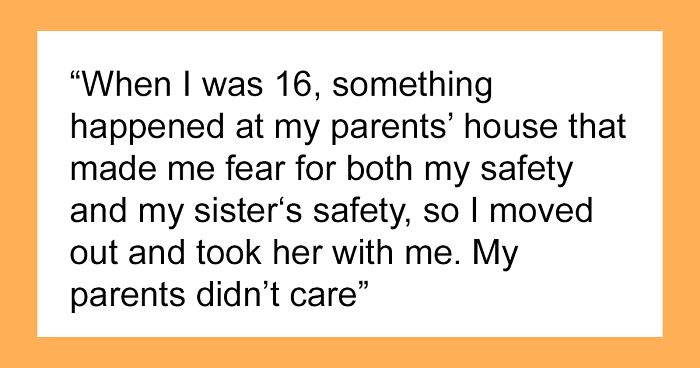
Mom Demands Daughter Take In Her Baby After CPS Is Called, Is Enraged When She Refuses
When parents pass away, become ill, overwhelmed, or absent, older siblings may take over their role, acting as guardians and caregivers. In such situations, a child is forced to adjust to adult responsibilities to ensure their sibling is fed, awake on time, and sent to school.
Redditor Ta_beate was pushed into this role at 8 when her little sister was born and their mom couldn’t look after them. After turning 16, they left the house, and the older sibling worked two part-time jobs, went to school, and raised her sister the best she could. Now that she’s 24 and will finally have a life of her own, her absent mother shows up, asking for favors.
Sometimes parents’ and children’s roles reverse, and children end up being the caregivers
Image credits: aleriygoncharukphoto/Envato elements (not the actual photo)
Just like it happened to this woman who raised her sister alone. However, after a while, the absent mother dared to show up, asking for favors
Image credits: nastuffa/Envato elements (not the actual photo)
Image credits: a_beate
Reasons why children are forced to take on parents’ roles vary
Image credits: Janko Ferlic/Pexels (not the actual photo)
The original poster’s experience falls under the term parentification. It describes the reversal of roles when a kid leaves their childhood to act as a caregiver. “The adult essentially adopts the dependent position in the parent-child relationship, and, in turn, the child is expected to fulfill what are typically considered to be adult responsibilities,” says Jennifer A. Engelhardt, Psy.D., a psychologist in Philadelphia.
Reasons why children are forced to take on parents’ roles vary. It’s more likely to occur when a guardian has a substance abuse disorder, has a serious medical condition, suffers from mental illness, or has experienced neglect or abuse in childhood. Financial issues and divorce are additional factors that can lead to parentification.
Children who are pushed to mature quickly can experience severe effects, as they often skip certain developmental stages. They are important for forming our personalities and setting the basis for adulthood. When they are left out or rushed through, it changes our sense of self, which can lead to issues later in life.
According to Newport Academy, a therapy program for adolescents with mental health or addiction problems, kids and teenagers who deal with parentification are known to struggle with anxiety, depression, social isolation, constant worry, and overworking. It also causes troubles in adulthood, with many continuing to be supporters, advice givers, or listeners. In addition, many feel rejection and disappointment in relationships, as well as struggle with anger, anxiety, poor self-esteem, and trust.
Sometimes adults who experienced parentification benefit from treatment
Image credits: cottonbro studio/Pexels (not the actual photo)
However, it’s important to note that there’s nothing wrong with giving a child chores to do around the house. In fact, it’s been found to be good for them, as long as the tasks are age-appropriate. Distinguishing between giving the child educational duties and adult responsibilities might be difficult. Therefore, Dr. Sophie Chung, CEO of Qunomedical, points out that asking a kid to do the dishes or prepare a bowl of cereal for a sibling is OK. However, when they’re expected to be the ones who always clean, feed, and take care of their brothers and sisters, they are given a lot more pressure than they should be.
Children who go through parentification don’t always need treatment. But if they’re experiencing negative effects, it might be beneficial to see a mental health professional. “The earlier that the unhealthy parent-child dynamic can be identified, the better off the child will be, says Aude Henin, PhD, Co-Director of the Child Cognitive-Behavioral Therapy Program at MGH. “It’s important to approach the situation without judgment of the child or parent, and to recognize that the family is typically doing the best that they can to cope with the situation, even if the outcome is not healthy.”
Sometimes adults who were parentified benefit from treatment as well. Besides, healing can help improve their parenting in the future. Becky Kennedy, Ph.D., a licensed clinical psychologist in New York City, mentions a method called reparentification. “We always start with compassion toward ourselves, and lead with the question, ‘How might the ways I had to learn to adapt to survive in my early years be working against me?'” she says.
Such deep-seated patterns can be hard to break out of, but working with your inner child can help. This means finding individual wants and needs, learning to rely on others, and working on attachment strategies and self-worth.
However, the consequences of parentification are not all bad. Many people who experience it develop strong caregiving tendencies, empathy, and emotional intelligence. In addition, they exhibit better interpersonal skills and independence.
Readers completely supported the woman’s decision
Poll Question
Thanks! Check out the results:
Or as the airlines say, put on your own mask before putting on your child's
Load More Replies...I’m wondering if the proven history with the first two children would be enough for her to lose custody permanently of the baby. Putting a 6 month old up for adoption would probably provide the best chance possible for the baby. But that could be hard to prove and have it stick legally. But overall, this is not OP’s battle to fight.
NTA, the baby is not your responsibility, I would urge you to speak to CPS and try and make sure the baby isn't returned to the home. Her future would be more stable and brighter if she can be placed permanently in a safe environment.
Or as the airlines say, put on your own mask before putting on your child's
Load More Replies...I’m wondering if the proven history with the first two children would be enough for her to lose custody permanently of the baby. Putting a 6 month old up for adoption would probably provide the best chance possible for the baby. But that could be hard to prove and have it stick legally. But overall, this is not OP’s battle to fight.
NTA, the baby is not your responsibility, I would urge you to speak to CPS and try and make sure the baby isn't returned to the home. Her future would be more stable and brighter if she can be placed permanently in a safe environment.

 Dark Mode
Dark Mode 

 No fees, cancel anytime
No fees, cancel anytime 






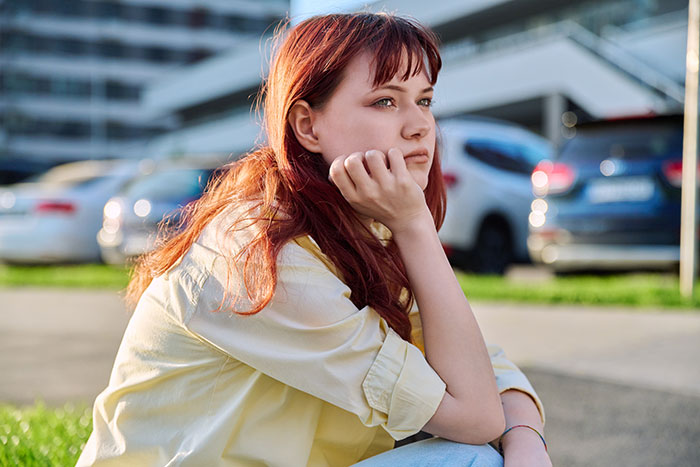
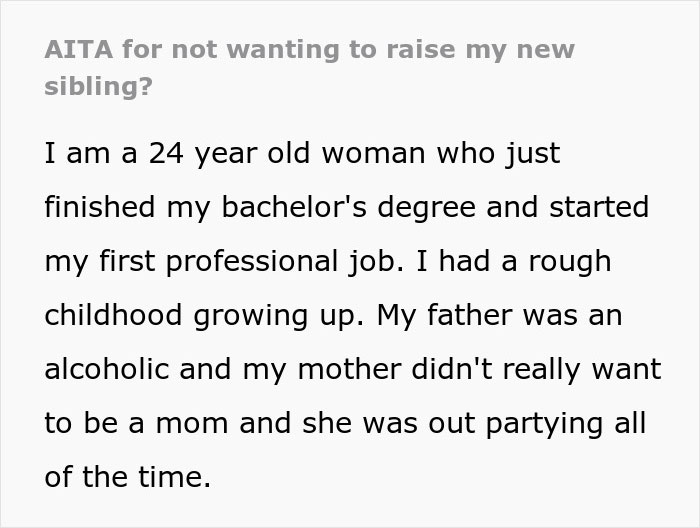
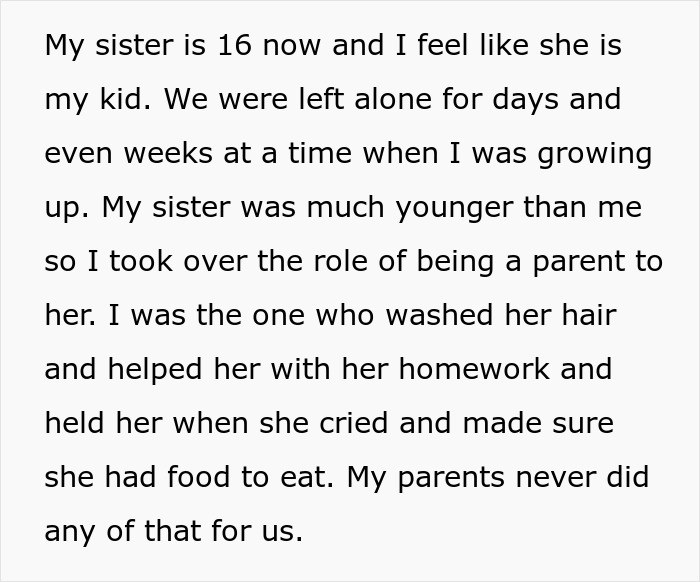
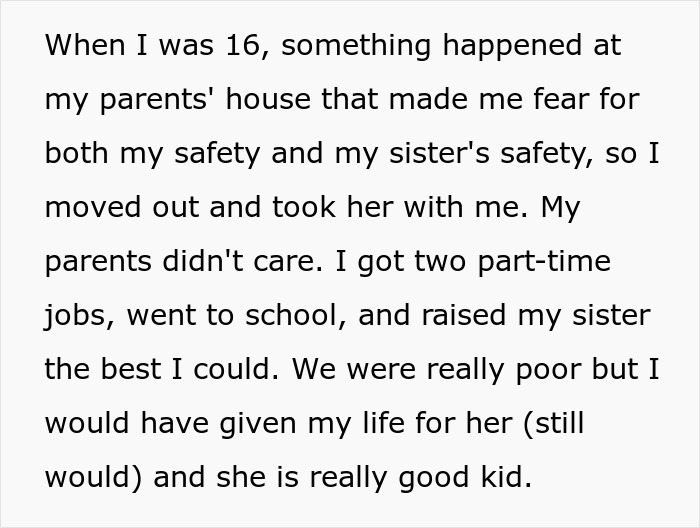

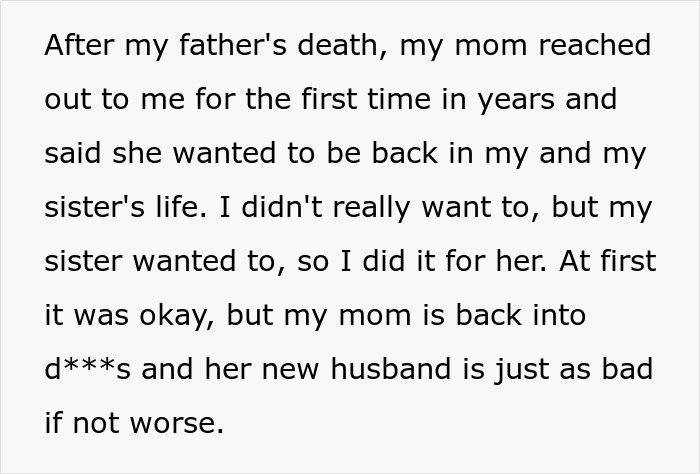
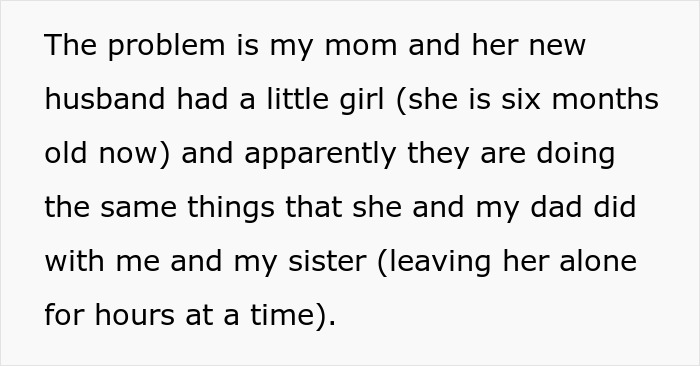
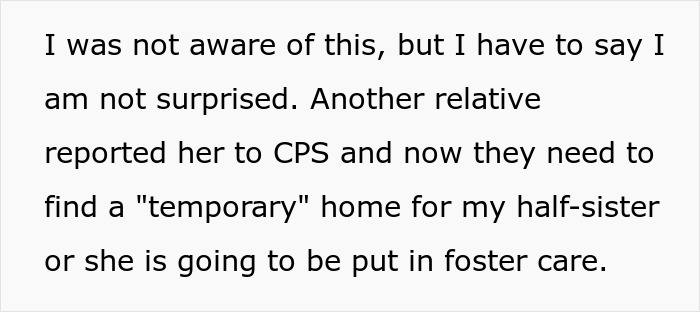
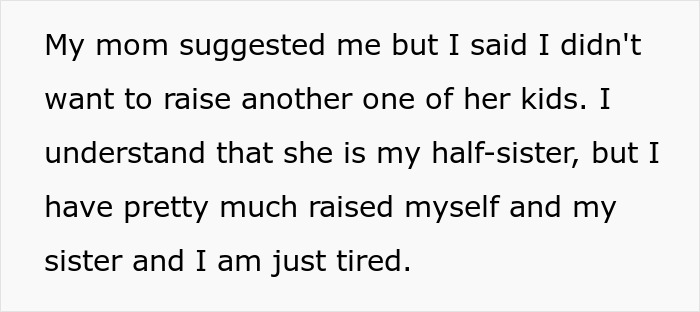
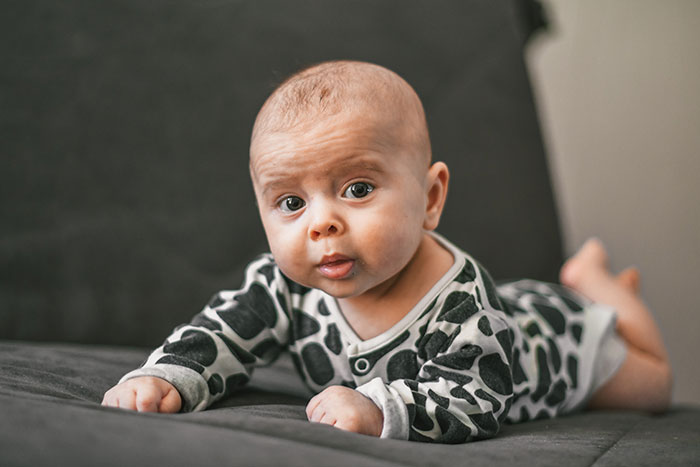
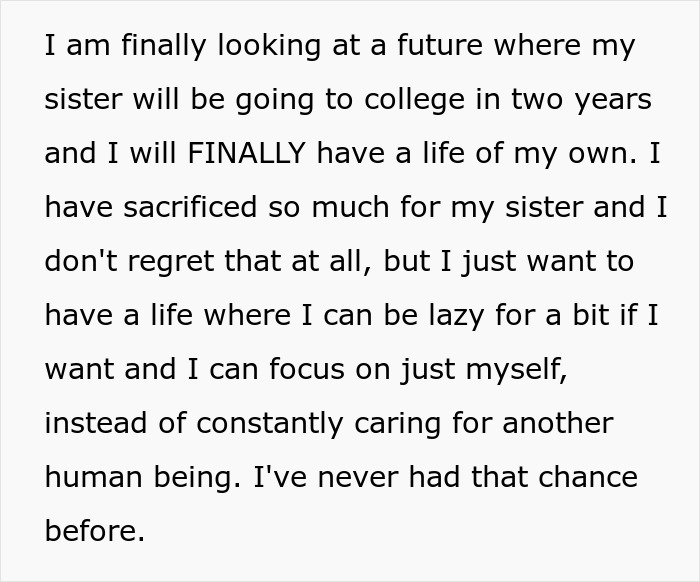
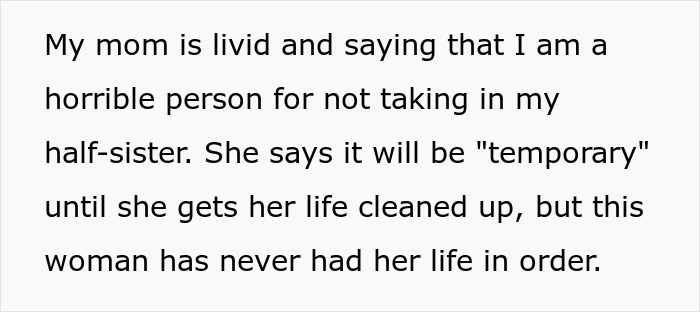
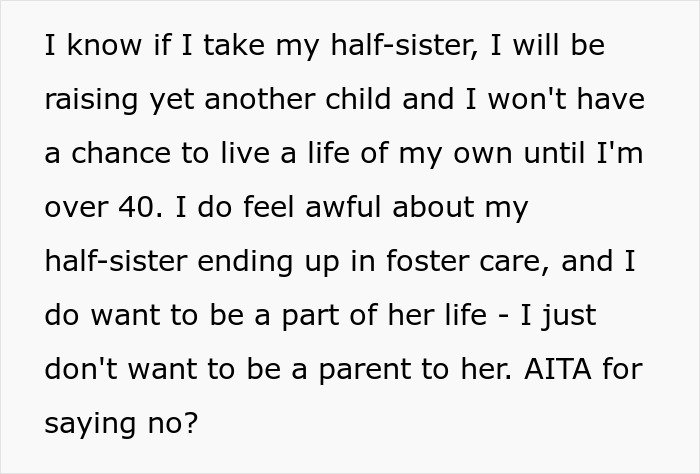
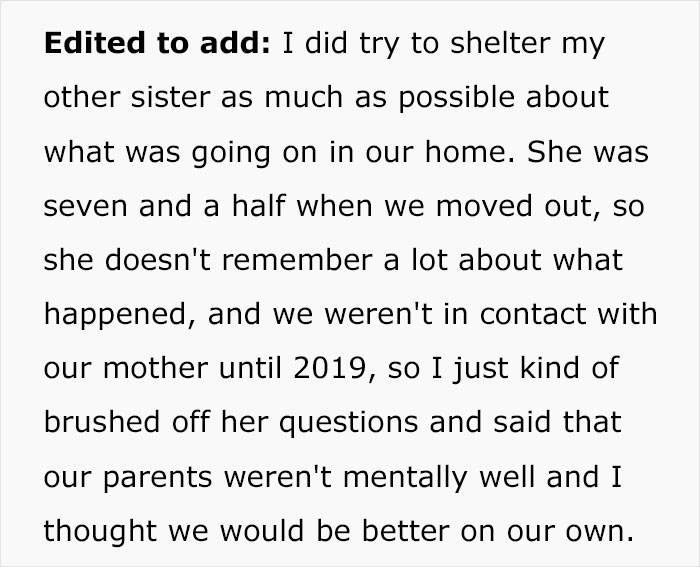
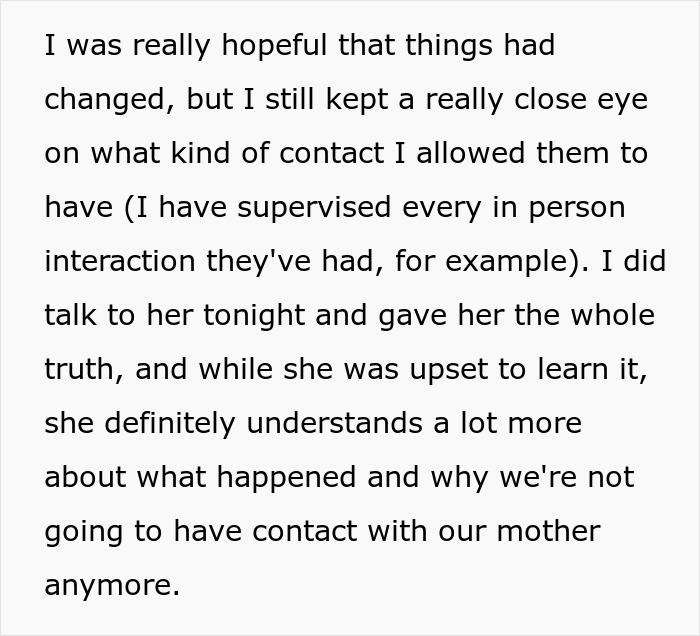
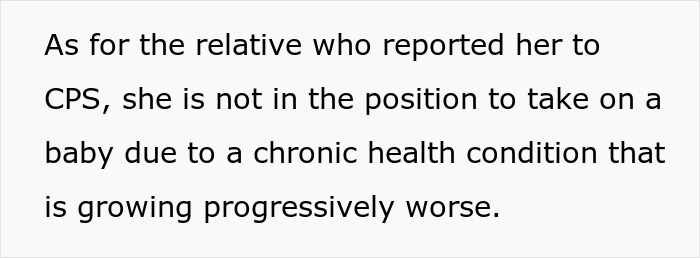
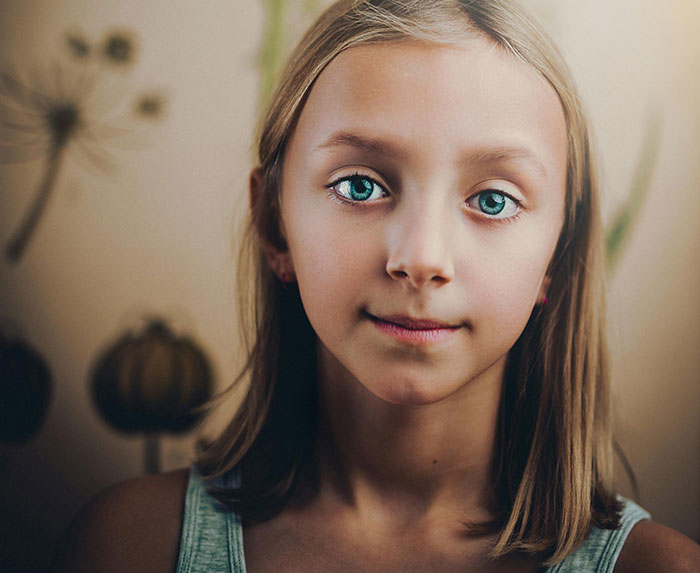
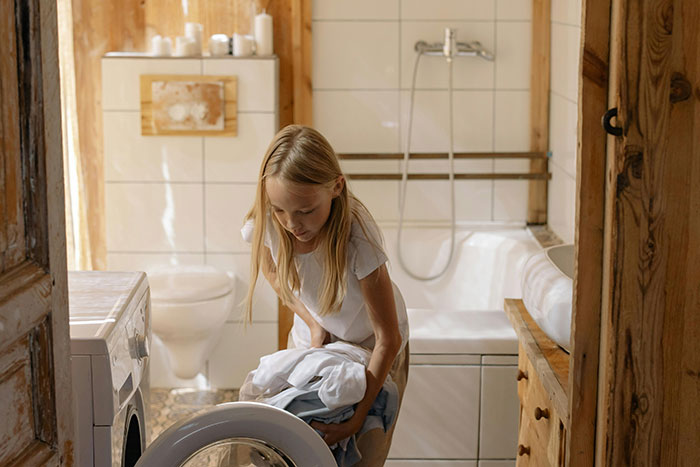
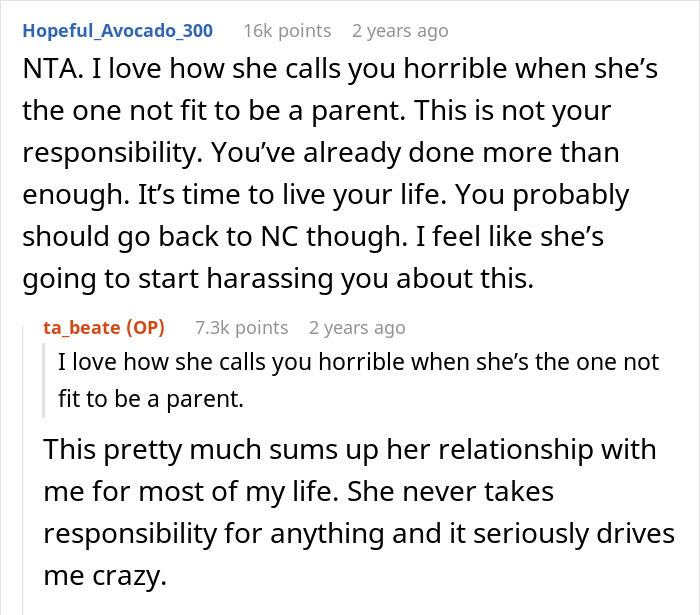
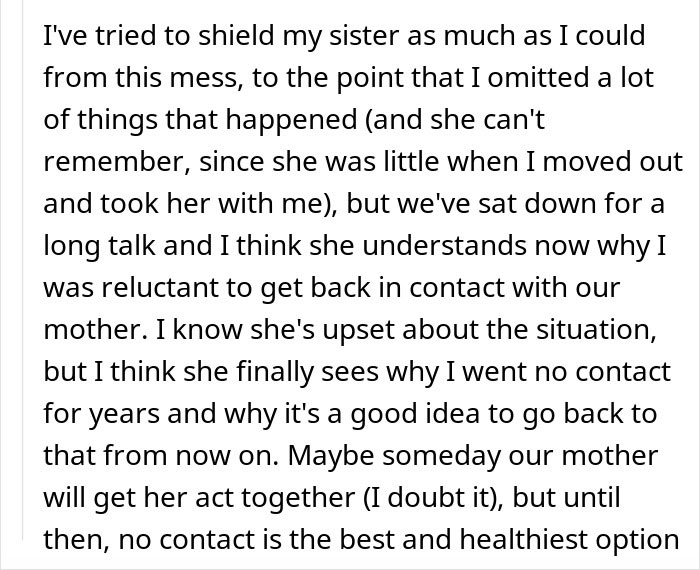
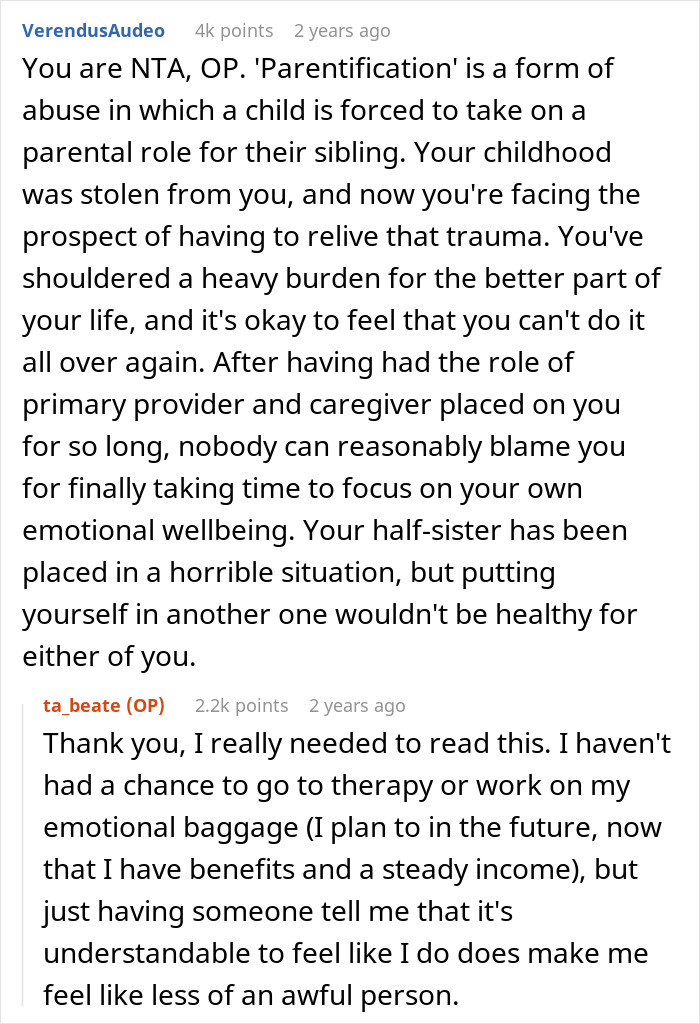
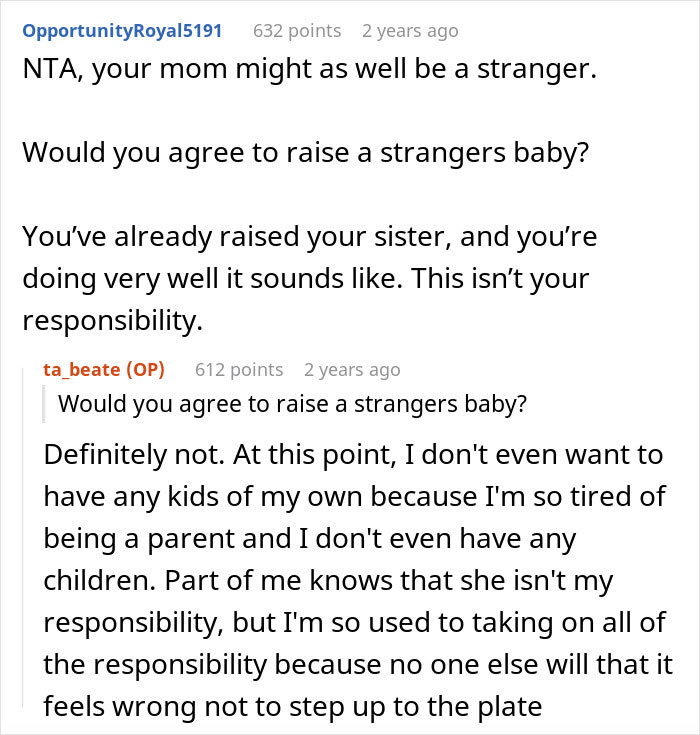
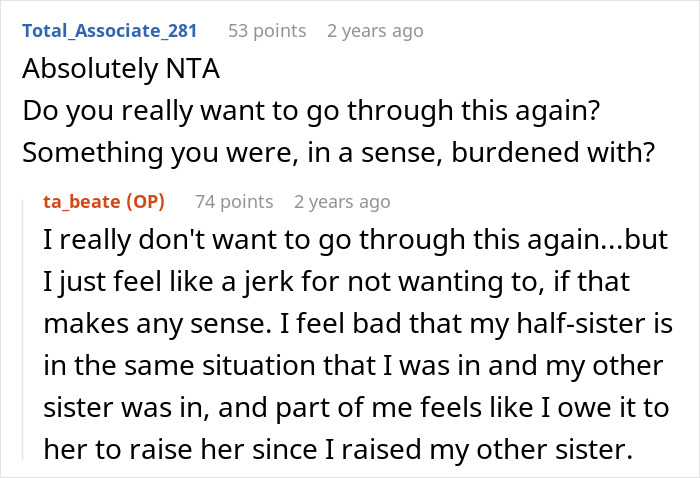
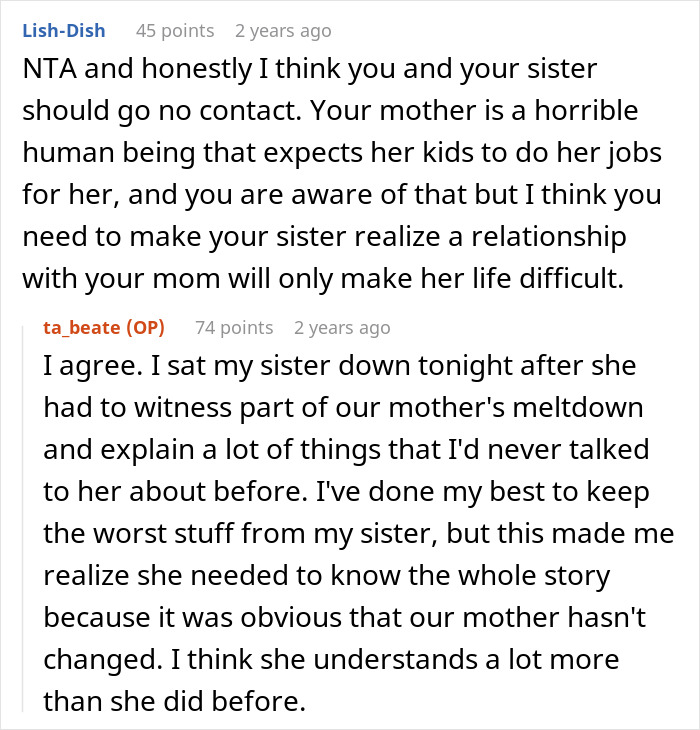
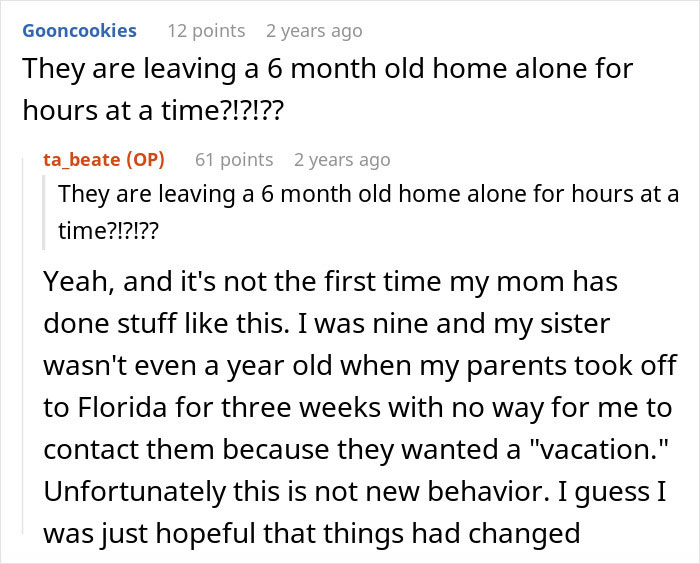
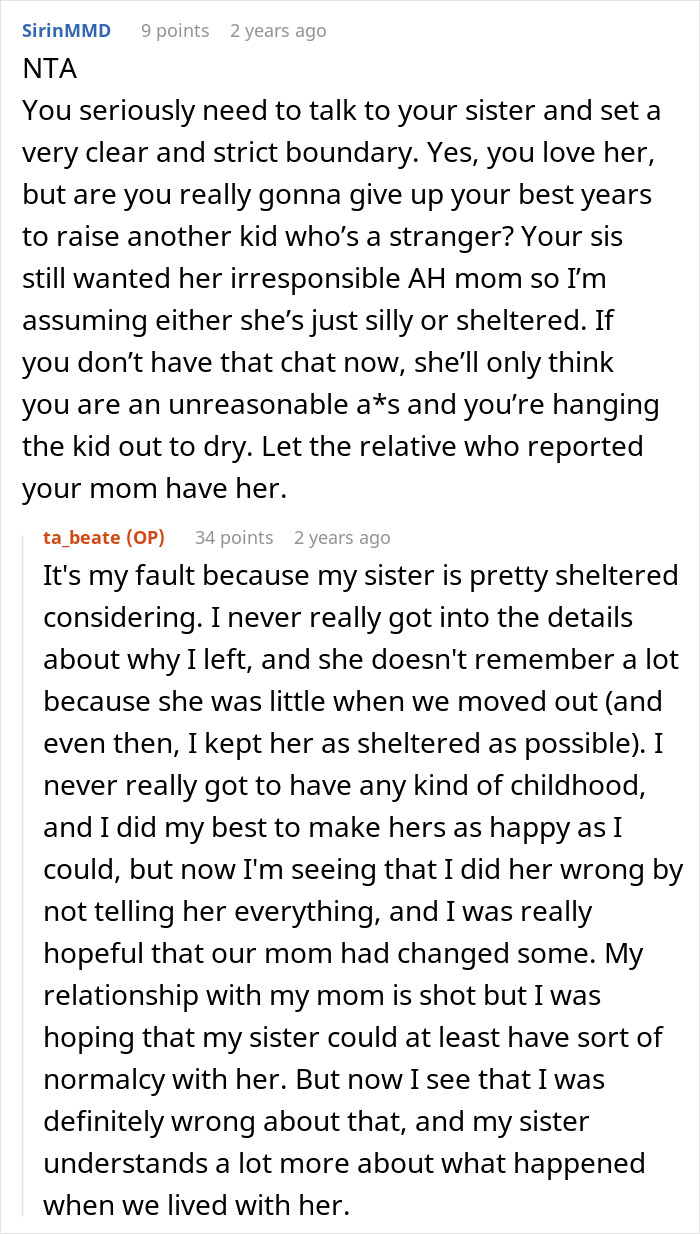
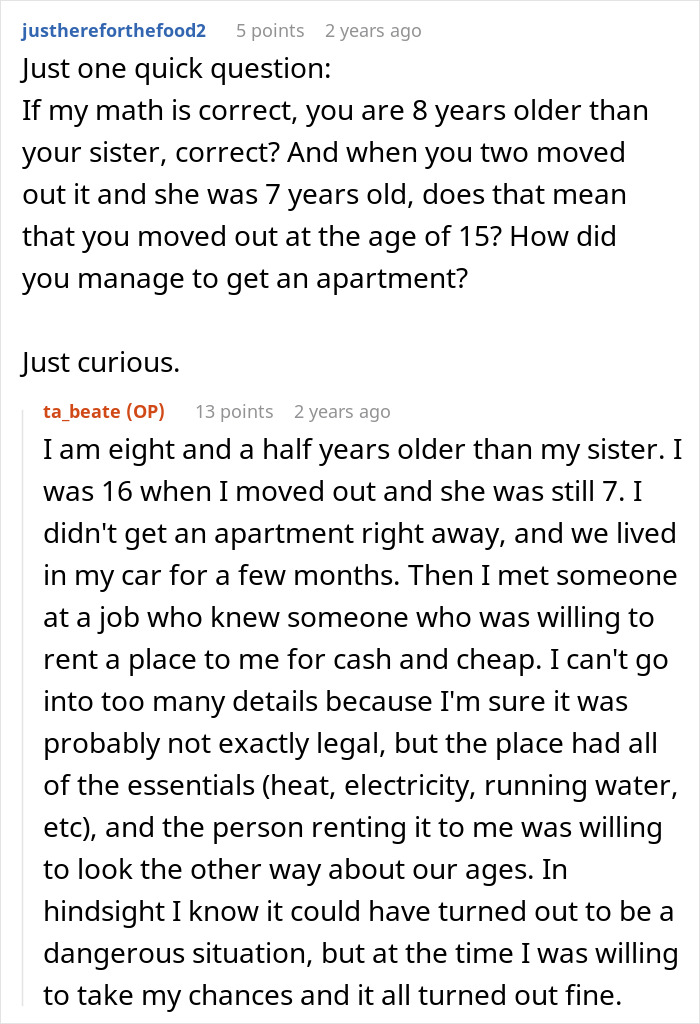
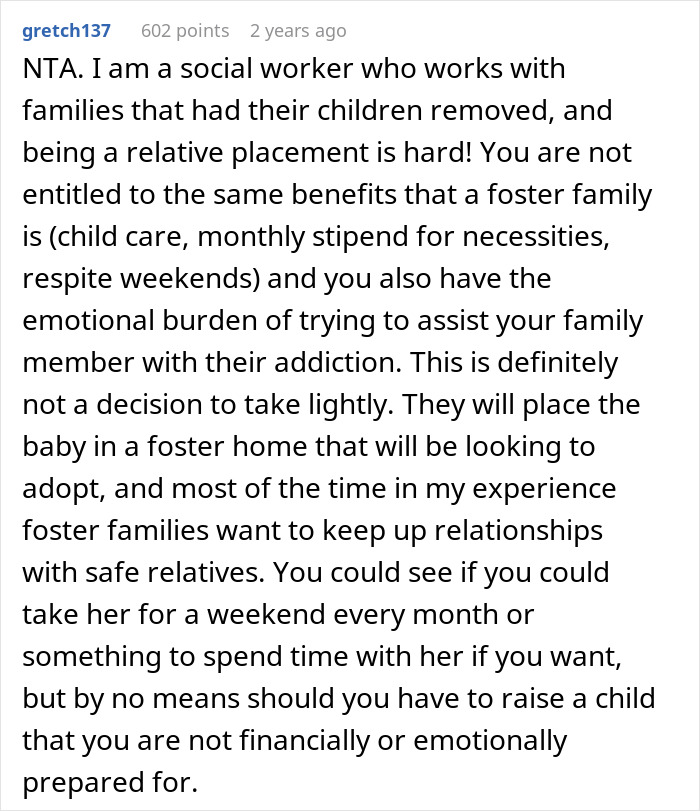

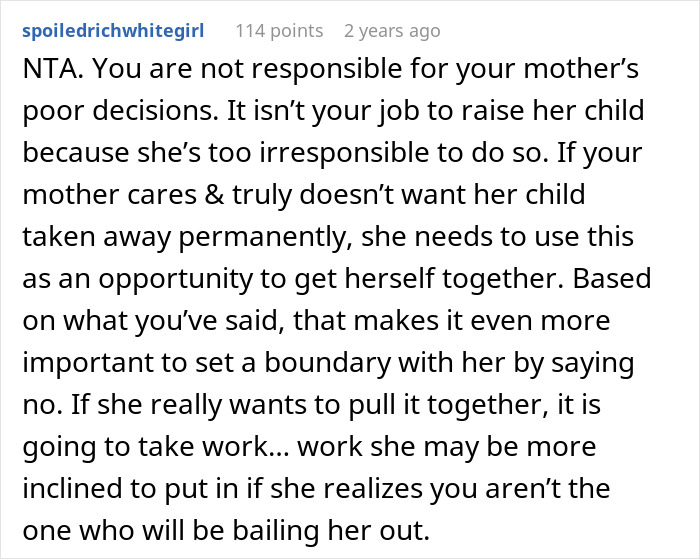


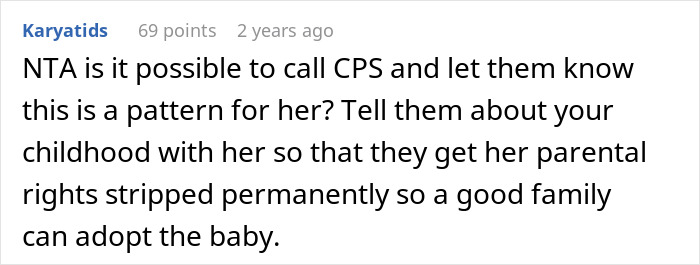














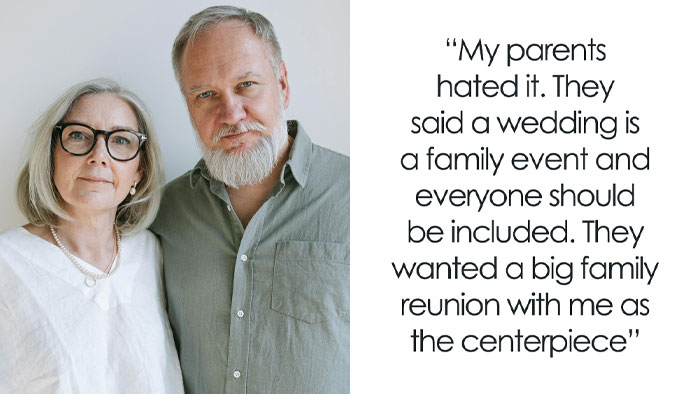
























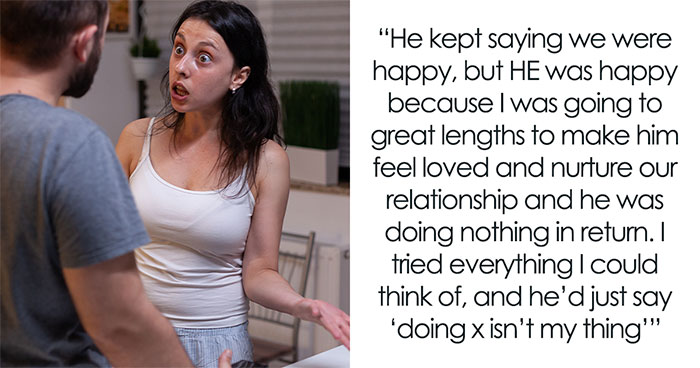





57
21